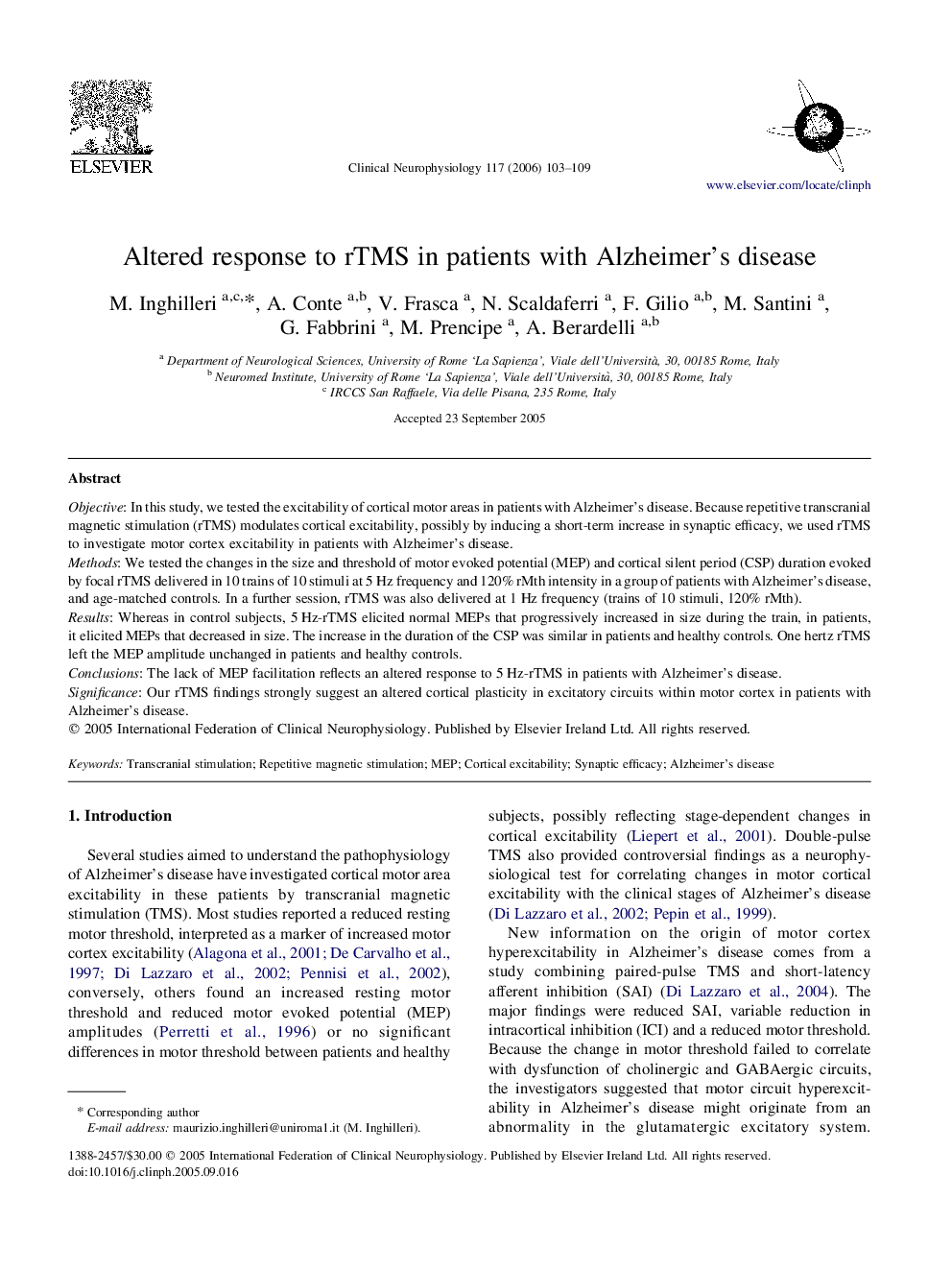| Article ID | Journal | Published Year | Pages | File Type |
|---|---|---|---|---|
| 3048072 | Clinical Neurophysiology | 2006 | 7 Pages |
ObjectiveIn this study, we tested the excitability of cortical motor areas in patients with Alzheimer's disease. Because repetitive transcranial magnetic stimulation (rTMS) modulates cortical excitability, possibly by inducing a short-term increase in synaptic efficacy, we used rTMS to investigate motor cortex excitability in patients with Alzheimer's disease.MethodsWe tested the changes in the size and threshold of motor evoked potential (MEP) and cortical silent period (CSP) duration evoked by focal rTMS delivered in 10 trains of 10 stimuli at 5 Hz frequency and 120% rMth intensity in a group of patients with Alzheimer's disease, and age-matched controls. In a further session, rTMS was also delivered at 1 Hz frequency (trains of 10 stimuli, 120% rMth).ResultsWhereas in control subjects, 5 Hz-rTMS elicited normal MEPs that progressively increased in size during the train, in patients, it elicited MEPs that decreased in size. The increase in the duration of the CSP was similar in patients and healthy controls. One hertz rTMS left the MEP amplitude unchanged in patients and healthy controls.ConclusionsThe lack of MEP facilitation reflects an altered response to 5 Hz-rTMS in patients with Alzheimer's disease.SignificanceOur rTMS findings strongly suggest an altered cortical plasticity in excitatory circuits within motor cortex in patients with Alzheimer's disease.
